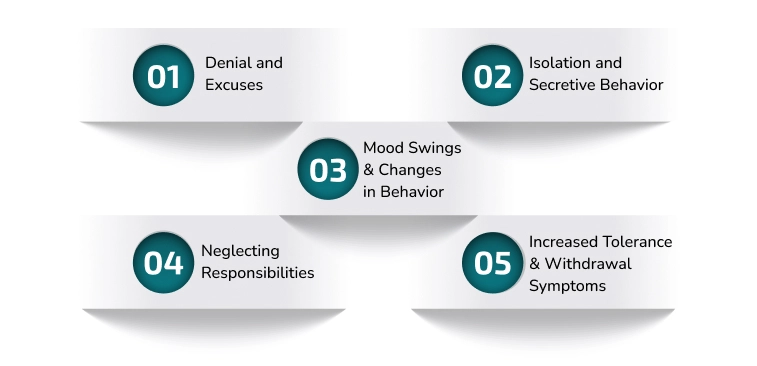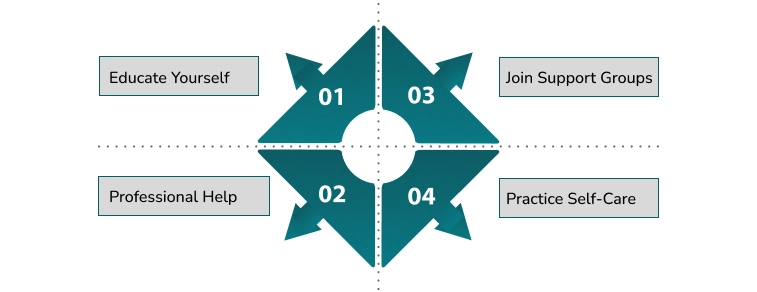
What is High Functioning Addict? Signs, Risks, and How To Get Help

Functional addict, high-functioning alcoholic, functional drug user – these are all terms that are used to describe individuals who struggle with addiction but maintain a seemingly normal lifestyle. This type of addict is often overlooked and underestimated because they appear to have their life together while still actively using substances. Their addiction may not be apparent to others due to their ability to maintain a job, relationships, and other responsibilities. It is important to understand what a high functioning addict is, the signs of this type of addiction, and the risks involved.
In this blog, we will delve deeper into the topic of high functioning addiction and provide information on how to get help for yourself or a loved one who may be struggling with this type of addiction.
What is High Functioning Addict?
A high functioning addict is an individual who continues to use drugs or alcohol despite the negative consequences and maintains a relatively stable life. This type of addiction is often characterized by excellent job performance, good relationships with family and friends, and other achievements that hide the underlying substance abuse issue.
However, just because someone appears to have their life together does not mean they are immune to the dangers and consequences of addiction. In fact, high-functioning addicts may be at an even higher risk due to the lack of support and recognition for their addiction.
According to a study published in the Journal of Substance Abuse Treatment, high functioning addicts are more likely to deny their addiction and resist treatment compared to non-high functioning addicts. This is because they may not see their substance use as a problem since it has not significantly affected their lifestyle.
Signs of a High-Functioning Addict
It can be challenging to identify a high functioning addict as they often hide their addiction well. However, there are some common signs and behaviors that may indicate someone is struggling with this type of addiction:

Denial and Excuses: A high functioning addict may deny their substance abuse issues and make excuses for their behavior. They may claim that they have control over their drug or alcohol use and can stop anytime they want. furthermore, they may rationalize their substance abuse by saying it helps them cope with stress or other issues in their life.
Isolation and Secretive Behavior: High-functioning addicts may try to distance themselves from loved ones and isolate themselves to hide their addiction. They may also become secretive about their actions, such as hiding drug use or drinking alone.
Mood Swings and Changes in Behaviorb: Substance abuse can cause drastic mood changes and erratic behavior. A high-functioning addict may experience extreme highs and lows, become easily agitated or defensive, and have difficulty managing their emotions.
Neglecting Responsibilities: Despite appearing to have their life together, a high-functioning addicts may neglect responsibilities such as work, family obligations, or personal hygiene due to their substance abuse.
Increased Tolerance and Withdrawal Symptoms: As with any addiction, a high functioning addict may develop a tolerance to their drug of choice, leading them to use more to achieve the desired effects. They may also experience withdrawal symptoms when they try to stop using or cut back on their substance intake.
How to Deal With High-Functioning Drug Addiction
High-functioning addiction is a term used to describe individuals who are able to maintain their daily responsibilities and appear outwardly successful while still struggling with substance abuse. This type of addiction can be difficult to detect as the person may not exhibit obvious signs of drug or alcohol misuse. However, this does not mean that they are not experiencing negative consequences from their addictive behaviors.
If you or a loved one is struggling with high functioning addiction, it is essential to seek help. Here are some steps you can take to address and overcome this type of addiction:

Educate Yourself: The first step in dealing with any addiction is to educate yourself about the condition. Learn about the signs and risks of high-functioning addiction, as well as the treatment options available.
Seek Professional Help: Talk to a medical professional or addiction specialist about your concerns. They can provide you with personalized treatment recommendations and support throughout your recovery journey.
Join Support Groups: Support groups, such as Alcoholics Anonymous or Narcotics Anonymous, can be beneficial for high functioning addicts. These groups provide a safe and non-judgmental space to share experiences and receive support from others who understand what you are going through.
Practice Self-Care: Taking care of your physical and mental well-being is crucial in overcoming addiction. Make time for activities that bring you joy, practice relaxation techniques, and prioritize healthy habits such as exercise and proper nutrition.
Occupations with the risk of High Functioning Addiction
There are certain occupations that can put an individual at higher risk of developing a high functioning addiction. These jobs often require long hours, high levels of stress, and an intense work culture, which can make it easier for individuals to turn to drugs or alcohol as a coping mechanism.
Some occupations with a high risk of high functioning addiction include:
- Healthcare professionals: Doctors, nurses, and other healthcare professionals often work long hours with high levels of stress. This can lead them to turn to alcohol or prescription drugs to cope with the demands of their job.
- Lawyers: The legal profession is known for its high-pressure environment and demanding workload, which can make it difficult for lawyers to maintain a healthy work-life balance. As a result, they may turn to substances as a way to cope with the stress.
- Executives and CEOs: The responsibilities of being an executive or CEO can be overwhelming, often leading to high levels of stress. To cope with this pressure, some individuals may turn to drugs or alcohol as a way to relax and unwind.
- Salespeople: Sales jobs often require individuals to meet strict targets and work long hours, which can lead to high levels of stress. Some salespeople may turn to substances as a way to boost their energy and confidence, making it easier for them to meet their targets.
- Artists and musicians: The creative industries are known for their intense and erratic work schedules, which can make it difficult for individuals to maintain a stable lifestyle. As a result, some artists and musicians may turn to drugs or alcohol as a way to cope with the pressures of their profession.
These are just a few examples of occupations that can put individuals at a higher risk of developing a high functioning addiction. It’s important for employers in these industries to be aware of this risk and take steps to support their employees’ mental health and well-being.
How to Help An Addict in Denial
One of the biggest challenges in dealing with high functioning addiction is that the individual may not see themselves as having a problem. They may believe that they have control over their substance use and refuse to acknowledge the negative impact it is having on their life.
Secretly addicted individuals may also be in denial about their addiction because they do not fit the stereotypical image of someone struggling with substance abuse. They may fear judgment or believe that seeking help will negatively impact their career or relationships.
Functioning addict recovery requires the individual to first admit that they have a problem and are in need of help. Here are some tips on how to support an addict in denial:
Avoid confrontation: Confronting someone about their addiction can often lead to them becoming defensive or shutting down. Instead, approach them with compassion and understanding.
Provide resources: Offer information about addiction treatment options and support groups. Let them know that they are not alone and that there is help available.
Focus on the negative impact: Rather than lecturing about their behavior, focus on how their addiction may be affecting their life and relationships. This can help them see the need for change.
Set boundaries: It’s important to establish healthy boundaries with an addict in denial. This can include refusing to enable their substance use and setting consequences for their actions.
Remember that, ultimately, it is up to the individual to seek help and make changes. You cannot force someone to recover from addiction, but you can offer support and resources along the way.
What Percentage of Addicts Stay Clean?
The road to recovery is long and challenging, but it is possible. However, the journey doesn’t end once an individual completes treatment; maintaining sobriety is an ongoing process that requires dedication and support.
Statistics on relapse rates vary, as addiction affects each person differently. However, research suggests that between 40-60% of individuals who receive treatment for addiction will relapse at some point in their life. This is not to say that treatment is ineffective, but rather that addiction is a chronic disease that requires ongoing management and support.
Factors such as the severity of the addiction, co-occurring mental health disorders, and access to support systems can also play a role in an individual’s likelihood of staying clean. With proper treatment and a strong support system, the chances of a high functioning addict achieving long-term recovery can increase significantly.
Whats a Functioning Alcoholic?
A functioning alcoholic is someone who is addicted to alcohol but maintains a high level of functionality in their daily life. This can include maintaining a job, relationships, and other responsibilities despite their addiction.
Unlike stereotypical portrayals of alcoholics, functioning alcoholics may not show obvious signs of being intoxicated or have severe consequences as a result of their drinking. They may also have a high tolerance for alcohol, making it easier for them to hide their addiction.
However, this does not mean that they are any less at risk of developing health problems or experiencing negative consequences from their drinking. In fact, functioning addicts may be more likely to develop long-term health issues due to the prolonged use of substances while maintaining a busy and stressful lifestyle.
Conclusion
The term “high functioning addict” is not meant to label or stigmatize individuals struggling with addiction. Instead, it serves as a reminder that addiction can affect people from all walks of life and may not always be obvious. Recognizing the signs of high functioning addiction and understanding its risks is crucial in providing support and resources for those in need. With proper treatment and ongoing support, individuals can overcome their addiction and achieve long-term recovery.
Remember, no one is immune to the dangers of addiction, but with awareness and compassion, we can help those in need find a path toward a healthier and happier life.

